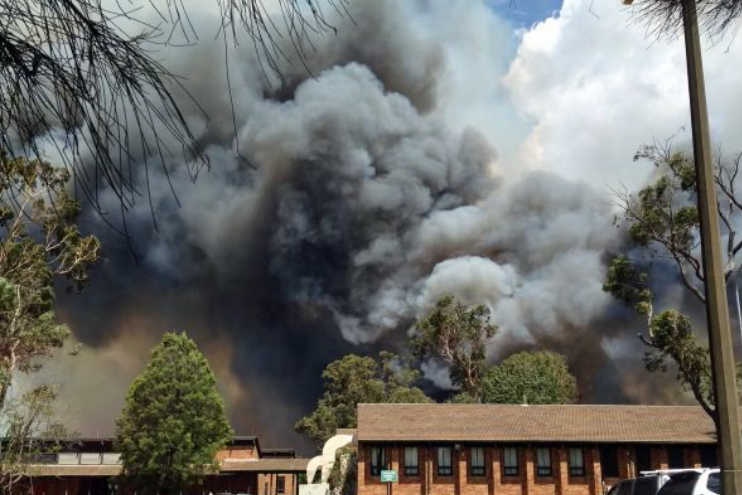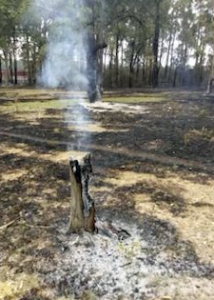
Eight years ago, I was caught in a bushfire in the Hunter Valley in New South Wales. The fire began at the conference centre where we were staying. We prepared to evacuate, but authorities told us it was too late. Next followed an anxious wait of more than 60 minutes, all the while watching the black smoke that grew larger as it came closer. Eventually firefighters began watering our place of refuge. After what felt like an interminable vigil, the authorities decided it was safe for us to leave the property, and we drove quickly away from the still smouldering embers.
For those of us who live in southern Australia, this can be a common story. Summer means preparing for bushfires. The Church celebrates Ash Wednesday, the beginning of the Lenten season towards the end of this anxious time.
As Australian Christians come forward to be signed on Ash Wednesday, many of us associate the blessed ash with destruction brought about by out-of-control fires that destroy homes and properties, wildlife, and occasionally sadly, even people. The use of ash collected from such fires makes this especially poignant.

The signing with ashes is accompanied by words. We hear ‘repent, and believe in the Gospel’, urging us to fix our compass on Christ; or ‘Remember that you are dust and unto dust you shall return’, – reminding us of our mortality. Both messages challenge us to action.
As a child I remember using the Lenten season to give up certain food or activities that I enjoyed. As I grew older, I tried to pray more, or find ways to help others, especially those in need. I truly wanted to earn God’s love, without ever realising God already loved me unconditionally. Lent for me was never a time to savour, but rather a few weeks that tested my endurance, a time to sacrifice myself, and look forward to Easter when I could once again be happy and hopeful – when the suffering of the cross makes way for the resurrection. As an adult, I realise this was not exactly the approach the Church invites us to take.
On Ash Wednesday, the Church reminds us to pray; to fast; and to give alms. But never is the focus solely about myself and what I do, nor is it an exercise to earn God’s love. Ash Wednesday is less about me and more about us. As we gather around the Eucharistic table we actively engage in the mystery of Christ’s death and resurrection, so that our sacrifice – as the priest says: ‘might be acceptable to God’. In the readings of the feast, we hear Joel tell us to ‘turn to the Lord your God again, for he is all tenderness and compassion.’ (2:12-18) Psalm 50 assures us that God will once again ‘give us the joy of your help’ while Paul assures the Corinthians in his second letter (6:2) that God will come to our help – not just me alone, but we, the Body of Christ.
Ashes come from fire. It is the fire within us, the fire of the Holy Spirit that empowers us to ‘repent and believe the Gospel,’ who calls us to pray, to fast from what is unnecessary, and urges us to act with generosity and love especially towards the poor, and our planet.
In a world beset by tyranny and calamity, spurred on by the destructive fires of power and greed, Mary MacKillop and Julian Tenison Woods would invite us, not to turn in on ourselves, but with the fire of the Spirit, to reach out, to be a beacon of hope and love in our society.
Carmel Pilcher rsj
